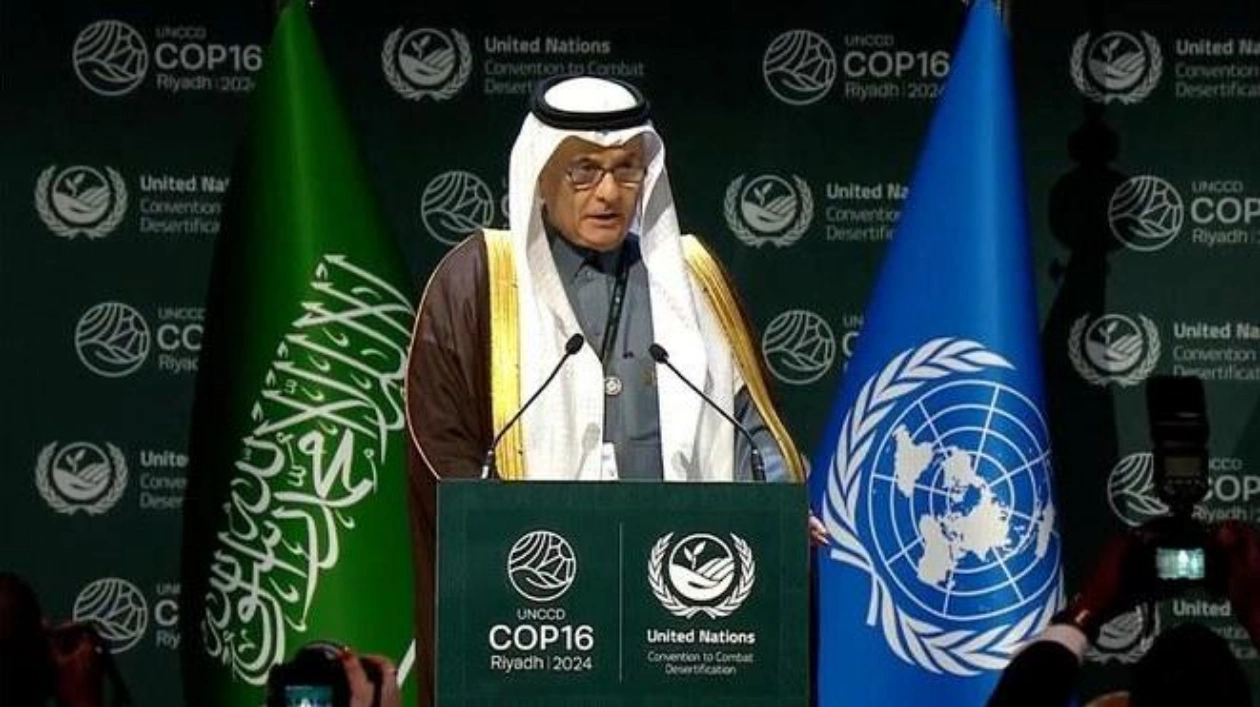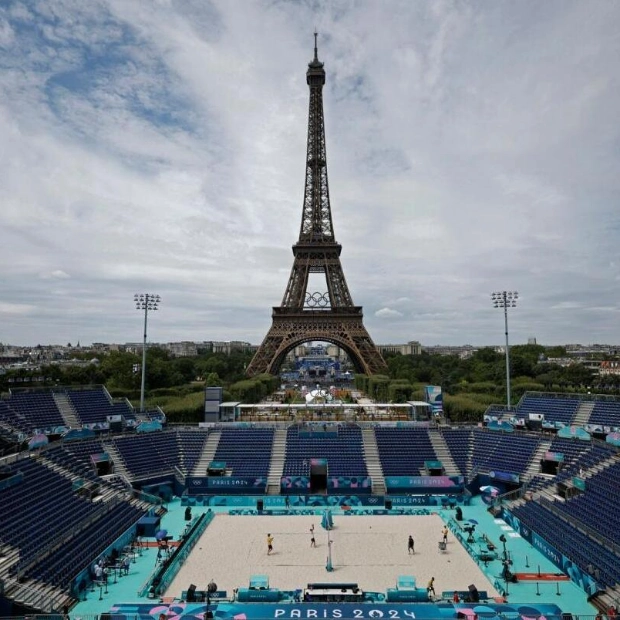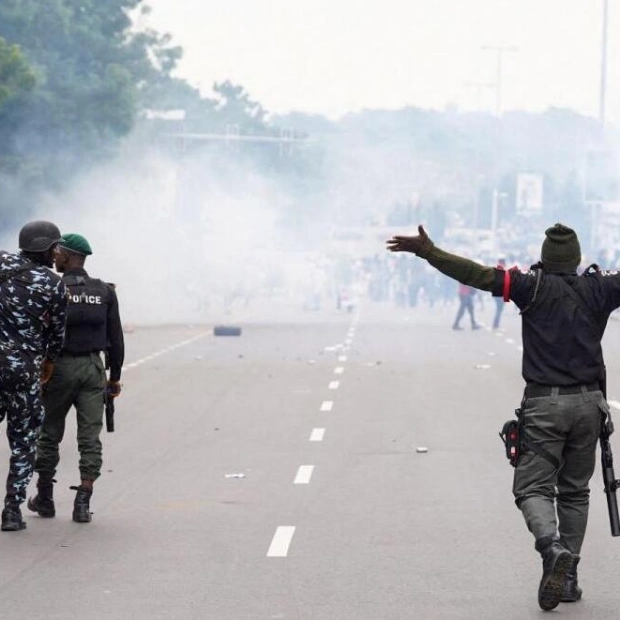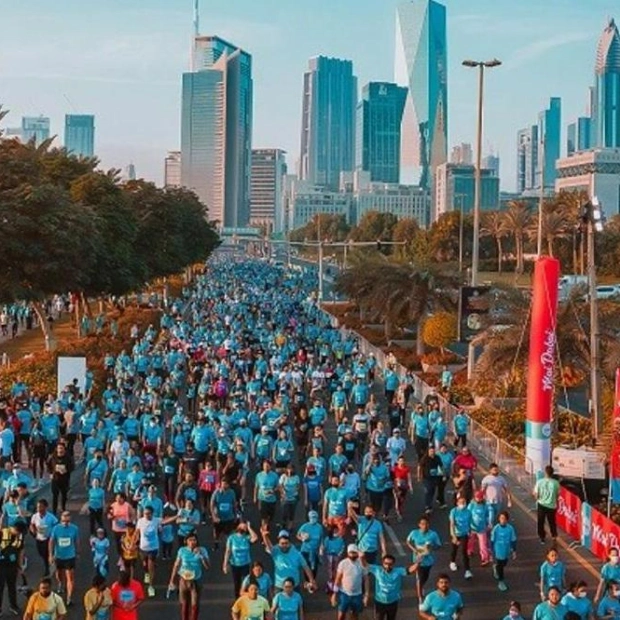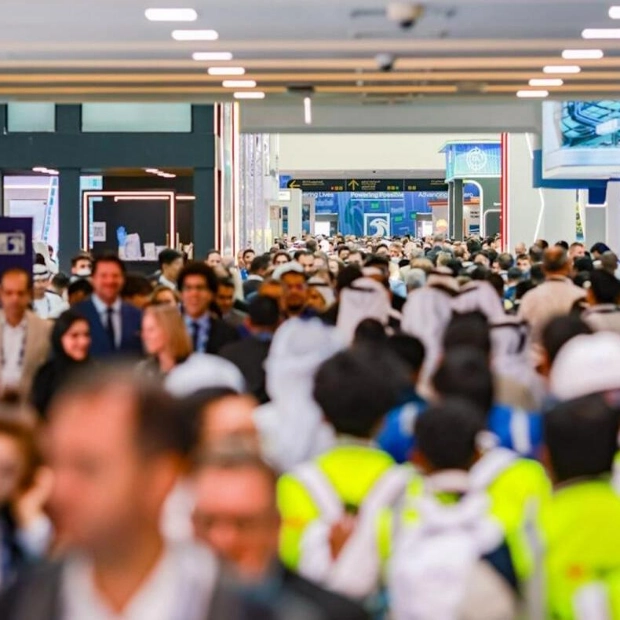RIYADH: Saudi Arabia’s incoming COP16 president pledged to collaborate with the international community to address drought and desertification on the opening day of a UN conference in Riyadh.
Abdulrahman Al-Fadli, the Kingdom’s minister of environment, delivered his speech at the event, which runs from December 2 to 13 under the theme “Our Land. Our Future,” highlighting the global challenges at hand.
Outgoing COP15 president, Côte d'Ivoire’s Alain-Richard Donwahi, passed the baton of the UN Convention to Combat Desertification, emphasizing the need for ongoing urgency. Meanwhile, Ibrahim Thiaw, executive secretary of the UNCCD, cautioned that nearly 40 percent of the Earth’s surface is plagued by land degradation.
Al-Fadli expressed his “honor” at being elected president, stating: “We anticipate intensifying efforts under this convention to confront these challenges and foster integration among various international environmental organizations.”
Reflecting on the future challenges, he underscored the Kingdom’s dedication to combating desertification, noting: “The Middle East is among the regions most severely affected by land degradation, drought, and desertification. We aim to tackle these environmental issues in partnership with the global community.”
The environment minister pointed to Vision 2030 as a cornerstone of the Kingdom’s green agenda, asserting: “Safeguarding the environment and natural resources is crucial for achieving sustainable development and enhancing the quality of life.”
Al-Fadli outlined the Kingdom’s goals, including the Saudi Green Initiative, which targets the restoration of 40 million hectares of degraded land and a 30 percent increase in national reserves by 2030.
He added: “We have launched initiatives and programs to curb pollution, enhance vegetation cover, and improve waste management and meteorological services.”
Addressing broader strategies, Al-Fadli mentioned that Saudi Arabia has implemented the National Environment Strategy and established a fund for environmental causes, along with five specialized centers.
He emphasized efforts in renewable energy: “We aim to ensure over 50 percent of our energy mix is derived from renewable sources by 2030, significantly reducing carbon emissions.”
Mayor of Riyadh Faisal bin Abdul Aziz bin Ayyaf emphasized the interconnectedness of environmental challenges, stating: “No country or city can address these challenges in isolation. Through international cooperation and collective effort, we can devise innovative solutions to restore our land and develop our cities.”
Amina Mohammed, deputy secretary-general of the UN, called for immediate global action, particularly in strengthening international cooperation on land degradation, accelerating restoration efforts, and mobilizing substantial financial resources.
“Land sustains us, and we are destroying it. Action cannot be delayed,” she said.
Outgoing president Donwahi commended Saudi Arabia’s capability to lead the fight against land degradation, expressing confidence in the Kingdom’s ability to “enhance our shared legacy even further” as it tackles issues like sandstorms and drought.
Stressing the ongoing urgency, he said: “We have remained optimistic. However, the situation remains critical. We must accelerate our efforts.”
Donwahi acknowledged the progress made by previous COPs, notably the inclusion of youth, stating: “For the first time, we have appointed a special youth envoy, a powerful symbol of our commitment to young people.”
Ibrahim Thiaw, executive secretary of the UNCCD, used his speech to warn that close to 40 percent of the planet’s surface is affected by land degradation.
“This issue is advancing at an alarming rate,” he added.
Thiaw expressed his “profound gratitude” to Saudi Arabia for its “vision in advancing the global land restoration and drought resilience agenda.”
The conference also previewed COP17 in Mongolia, with Prime Minister Luvsannamsrain Oyun-Erdene affirming his country’s readiness.
Source link: https://www.arabnews.com
